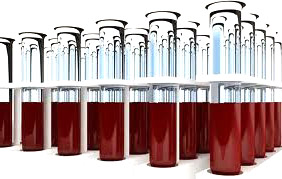Linking Clinical Symptoms with Lab Tests laboratory
 Published: 18 Oct 2024
Published: 18 Oct 2024
Blood Tests: Essential Insights into Your Health
Diagnostic Tool
* Blood tests provide a comprehensive view of your overall health.
* They aid in:
* Disease diagnosis
* Early detection of medical issues
* Monitoring existing conditions
Benefits
* Regular blood tests can uncover:
* Infections
* Anemia
* Latent disorders
Specific Tests
* Complete Blood Count (CBC):
* Measures blood cell counts
* Detects immune system issues, anemia, and infections
* Basic Metabolic Panel (BMP):
* Assesses chemical balance in the body
* Includes glucose and electrolyte levels crucial for organ function
Monitoring
* Tracking blood test results helps:
* Identify potential concerns
* Monitor changes over time
* Prevent or address health issues early on
Expanded Applications
* Cholesterol level checks for heart disease risk assessment
* Hormone level measurements for thyroid or adrenal health
Improved Treatment Plans
* Blood test insights empower medical providers to:
* Develop tailored treatment plans
* Implement preventive measures
* Support overall health improvement
 Published: 18 Oct 2024
Published: 18 Oct 2024